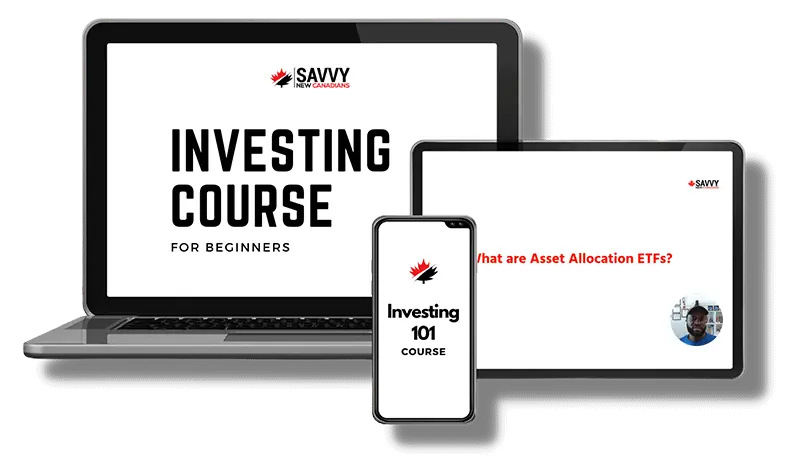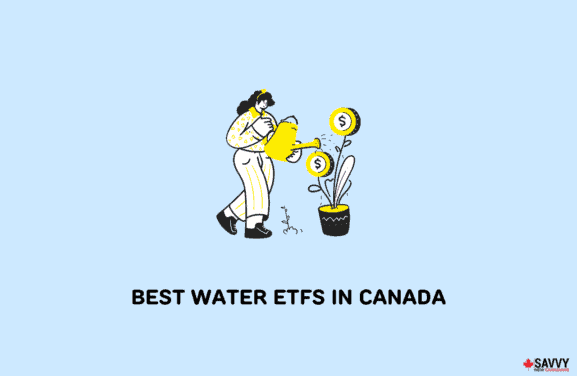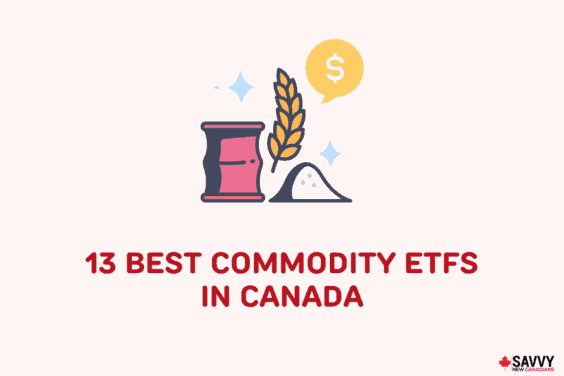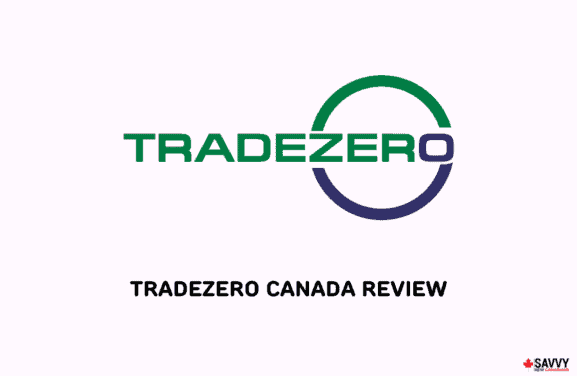In this article, we’ll cover some of the best emerging market ETFs in Canada that you can buy in 2024.
Investing in emerging markets is becoming increasingly popular among Canadian investors. This is due in part to the growing number of emerging market ETFs (exchange-traded funds) that are available on TSX, which have made it easier for investors to access these markets.
A big draw for investors investing in these ETFs is the potential for high returns. Emerging markets often exhibit a higher growth rate than developed markets, which means that investors can target potentially higher returns due to a broader range of growth opportunities.
This is especially true when investing in countries with a strong economic outlook and a rapidly growing population, such as India and China.
In addition to the potential for high returns, emerging market ETFs offer investors several advantages. These funds are typically well diversified and are relatively low cost, which means that investors can gain exposure to a range of markets with minimal effort and expense.
Furthermore, many of these ETFs offer a range of investment strategies and asset classes, so investors can tailor their investments to their own risk preferences.
However, it is important to note that investing in emerging markets also carries certain risks. These include currency fluctuations, market volatility, political risk and liquidity risk.
Therefore, it is important for investors to understand the risks associated with investing in emerging markets and to ensure that they are comfortable with the level of risk they are taking before investing.
Best Emerging Markets ETFs in Canada
Here is a list of the best-emerging markets ETFs in Canada:
1. Vanguard FTSE Emerging Markets All Cap Index ETF
- Ticker symbol: VEE
- MER: 0.24%
- 5-year average annual return: 1.21%
- Index/Benchmark: Emerging Markets All Cap China A Inclusion Index
- Issuer: Vanguard
- Assets under management: $1.607 Billion
- Inception date: November 30, 2011
The Vanguard FTSE Emerging Markets All Cap Index ETF (TSX: VEE) is an emerging market ETF that tracks the performance of the FTSE Emerging Markets All Cap China A Inclusion Index. This index comprises large-, mid-, and small-cap stocks in emerging markets from 24 countries.
VEE provides investors with broad diversification, as the ETF is composed of around 5,600 stocks in emerging markets. The fund is suitable for long-term investors looking for a way to access growth opportunities in emerging markets without taking on excessive risk.
2. BMO MSCI Emerging Markets Index ETF
- Ticker symbol: ZEM
- MER: 0.28%
- 5-year average annual return: 0.52%
- Index/Benchmark: MSCI Emerging Markets Index (CAD)
- Issuer: BMO GAM
- Assets under management: $1.5 Billion
- Inception date: October 20, 2009
The BMO MSCI Emerging Markets Index ETF (ZEM) is a great option for Canadian investors interested in gaining exposure to emerging markets. This ETF tracks the performance of the MSCI Emerging Markets Index, which provides investors with access to some of the world’s fastest-growing economies.
This ETF is eligible for both registered and non-registered investment accounts in Canada. ZEM is also a well-diversified ETF, with companies from Asia and Latin America accounting for 33.2% and 8.9% of the value of its portfolio at the end of November 2022.
- Ticker symbol: XEC
- MER: 0.27%
- 5-year average annual return: 0.45%
- Index/Benchmark: MSCI Emerging Markets Investable Market Index
- Issuer: BlackRock (iShares)
- Assets under management: $976.35 Million
- Inception date: April 10, 2013
The iShares MSCI Emerging Markets IMI Index ETF has provided its investors with an average annual return of 5.17% since its inception in April 2013. It is among the few emerging market ETFs with significant liquidity on the TSX.
XEC rebalances quarterly, which means that its constituents are changed every three months based on the changes made in the MSCI Emerging Markets Investable Market Index, which is the benchmark it tracks.
XEC is also eligible for both registered and non-registered investment accounts in Canada.
4. CI WisdomTree Emerging Markets Dividend Index ETF
- Ticker symbol: EMV.B
- MER: 0.42%
- 5-year average annual return: 2.1%
- Index/Benchmark: WisdomTree Emerging Markets Dividend Index CAD
- Issuer: CI GAM
- Assets under management: $62.51 Million
- Inception date: September 19, 2017
The WisdomTree Emerging Markets Dividend Index ETF is a great option for Canadian investors looking to make less risky investments in emerging markets.
This ETF invests exclusively in dividend-paying companies, providing investors with a reliable source of income while minimizing their risks.
The EMV.B tracks the performance of WisdomTree Emerging Markets Dividend Index, which is a fundamentally weighted index that measures the performance of dividend-paying stocks selected from the following 17 emerging market nations: Brazil, Chile, China, Czech Republic, Hungary, India, Indonesia, Korea, Malaysia, Mexico, Philippines, Poland, Russia, South Africa, Taiwan, Thailand, Turkey.
5. Horizons Emerging Markets Equity Index ETF
- Ticker symbol: HXEM
- MER: 0.28%
- 5-year average annual return: N/A
- Index/Benchmark: Horizons Emerging Markets Futures Roll Index (Total Return)
- Issuer: Horizons ETFs Management (Canada)
- Assets under management: $55.40 Million
- Inception date: August 04, 2020
The Horizons Emerging Markets Equity Index ETF is a unique emerging market ETF that does not invest in emerging markets securities directly but instead is designed to measure the performance of the underlying MSCI Emerging Markets Index Futures (MES) listed on the Intercontinental Exchange (ICE).
This ETF is different from other emerging market ETFs as it uses futures contracts to track the performance of the underlying index.
The Horizons Emerging Markets Equity Index ETF utilizes a process known as “rollover” to maintain exposure to the MSCI Emerging Markets Index. Rollover involves the periodic selling of futures contracts as they approach their expiration date and the simultaneous purchase of new, longer-term contracts.
This process helps ensure that the ETF maintains exposure to the MSCI Emerging Markets Index over time without having to buy and sell the individual securities of the index.
6. CIBC Emerging Markets Equity Index ETF
- Ticker symbol: CEMI
- MER: 0.25%
- 5-year average annual return: N/A
- Index/Benchmark: Morningstar Emerging Markets Target Market Exposure Index
- Issuer: Canadian Imperial Bank of Commerce (CIBC)
- Assets under management: $54.66 Million
- Inception date: September 16, 2021
The CIBC Emerging Markets Equity Index ETF had to feature in our best-emerging markets ETFs in Canada’s list because of its popularity. Launched in September 2021, this emerging market ETF already manages assets worth over $50 million, which is not a small feat for a newly launched emerging market ETF.
The CEMI tracks the Morningstar Emerging Markets Target Market Exposure Index that focuses on investing in large- and mid-cap stocks in emerging markets which account for 85% of the investable universe in such markets based on float-adjusted market capitalization.
7. Invesco S&P Emerging Markets Low Volatility Index ETF
- Ticker symbol: ELV
- MER: 0.34%
- 5-year average annual return: 3.72%
- Index/Benchmark: S&P BMI Emerging Markets Low Volatility Index
- Issuer: Invesco
- Assets under management: $11.7 Million
- Inception date: July 11, 2014
Invesco S&P Emerging Markets Low Volatility Index ETF is an excellent choice for Canadian investors who are looking for exposure to emerging markets without taking on too much risk.
The ETF tracks the S&P BMI Emerging Markets Low Volatility Index, which measures the performance of the 200 least volatile emerging market stocks.
Volatility is a measure of the amount of risk associated with a given investment. When an asset is more volatile, its price can swing up and down significantly and rapidly over time.
The lower volatility of the stocks in the index means that investors won’t experience extreme swings in the price of the ETF. This makes it a safer option than many other emerging market ETFs.
In addition to its low volatility, the ETF also offers a unique diversification opportunity. By investing in the 200 least volatile emerging market stocks, investors are able to spread their risk across a wide range of industries and countries.
Related: Safe Investments in Canada.
- Ticker symbol: XSEM
- MER: 0.31%
- 5-year average annual return: N/A
- Index/Benchmark: MSCI Emerging Markets Extended ESG Focus Index
- Issuer: BlackRock (iShares)
- Assets under management: $40.16 Million
- Inception date: March 18, 2019
The iShares ESG Aware MSCI Emerging Markets Index ETF is a great choice for Canadian investors looking for a socially-responsible investment option.
XSEM has been designed to provide investors with exposure to the performance of an environmental, social and governance (ESG)-oriented index, which is selected at the discretion of BlackRock.
The current ESG-oriented index that BlackRock has assigned to XSEM is the MSCI Emerging Markets Extended ESG Focus Index, which focuses on companies that are committed to sustainability and responsible investing.
By investing in the iShares ESG Aware MSCI Emerging Markets Index ETF, investors can rest assured that their money is going towards companies committed to reducing environmental and social risks.
The ETF is also a great choice for investors who want to support companies contributing to the global shift toward a more sustainable future.
9. Mackenzie Emerging Markets Equity Index ETF
- Ticker symbol: QEE
- MER: 0.22%
- 5-year average annual return: N/A
- Index/Benchmark: Solactive GBS Emerging Markets Large & Mid Cap CAD Index
- Issuer: Mackenzie Investments
- Assets under management: $16.46 Million
- Inception date: February 8, 2022
The Mackenzie Emerging Markets Equity Index ETF provides investors with low-cost, diversified exposure to emerging markets. As reported last month, the index tracked by the ETF, the Solactive GBS Emerging Markets Large & Mid Cap CAD Index, had 23.6%, 15%, and 11% exposure to China, India, and Taiwan, respectively.
In terms of sector breakdown, stocks from the financials, information technology and consumer discretionary sectors accounted for 20.1%, 17.1%, and 10.6% of the value of the ETF’s portfolio, respectively.
How To Buy Emerging Market ETFs in Canada
Our top choice for a trading platform to buy emerging ETFs in Canada is Questrade. It offers commission-free ETF purchases, and you pay low fees for stock trades.
Questrade offers a $50 trade credit when you fund your account with $1,000 or more.
Questrade

On Questrade’s Website
- Fees: $4.95 to $9.95 per trade
- Account minimum: $1,000 to start trading
- Promotions: Get $50 in free trades
What is an Emerging Markets ETF?
An Exchange Traded Fund (ETF) is an investment vehicle that allows investors to gain exposure to various assets, such as stocks, bonds, commodities, and currencies. ETFs are similar to stocks because they are traded on exchanges and typically have a ticker symbol.
However, unlike mutual funds, ETFs are usually passively managed and track an index or a benchmark, meaning that the fund’s performance will reflect the performance of the index or benchmark it tracks.
An emerging market ETF is an ETF that invests in companies located in emerging markets such as Brazil, China, India, Mexico, and South Africa. These markets are often characterized by rapid economic growth and a large, young population.
By investing in stocks and securities from these countries through an emerging market ETF, investors can access potentially higher returns than those typically seen in more established markets.
Emerging market ETFs typically track the performance of an emerging market index, such as the MSCI Emerging Markets Index.
Downsides of Emerging Markets ETFs
One of the biggest drawbacks of investing in emerging markets ETFs is the increased risk. Emerging markets often have less developed economies and financial systems, which means they can be more volatile and less predictable.
Emerging markets are also more susceptible to political and economic changes, which can have a significant impact on the value of the ETF. Additionally, currency fluctuations can have a significant impact on the value of these investments.
Another disadvantage of investing in emerging markets ETFs is the lack of liquidity. These ETFs are often thinly traded, which can make it difficult to find buyers or sellers at the price you want.
Moreover, these ETFs usually have higher management fees and expense ratios than more established and prominent ETFs.
Should You Invest in Emerging Markets ETFs?
Investing in emerging markets ETFs can be an attractive option for investors looking to diversify their portfolio and capitalize on the potential of less developed economies.
Emerging markets ETFs provide exposure to different countries, regions and sectors, giving investors the opportunity to benefit from global growth and higher returns.
However, there are also risks associated with investing in emerging markets ETFs. These include currency risk, political risk, and economic risk. Additionally, emerging markets can be more volatile than mature markets, so investors should be prepared to ride out some of the market swings.
Ultimately, investors should use caution when considering investing in emerging market ETFs. It is important to understand the potential risks associated with the investment and to diversify your portfolio to spread out the risk.
As with any investment, it is important to do your research and/or consult with a financial advisor before making any decisions.
Stock Advisor Canada

Unlimited access to expert stock recommendations
Almost doubled the S&P/TSX Index over last 9 years
New stock picks every month
50,000+ members
$1.90 weekly (66% discount)
Methodology
The methodology used to rank the 9 best emerging market ETFs in Canada was based on three criteria: assets managed, length of time available, and returns. Assets managed were the most important factor, as this gives an indication of investor confidence and liquidity.
Second, we looked at the length of time the ETF has been available, as longer-term ETFs tend to be more stable and reliable.
Finally, we looked at the returns of the ETFs, as this is the ultimate measure of success for any investment. All three criteria were considered when ranking the ETFs, with assets managed as the primary factor.
Related:






